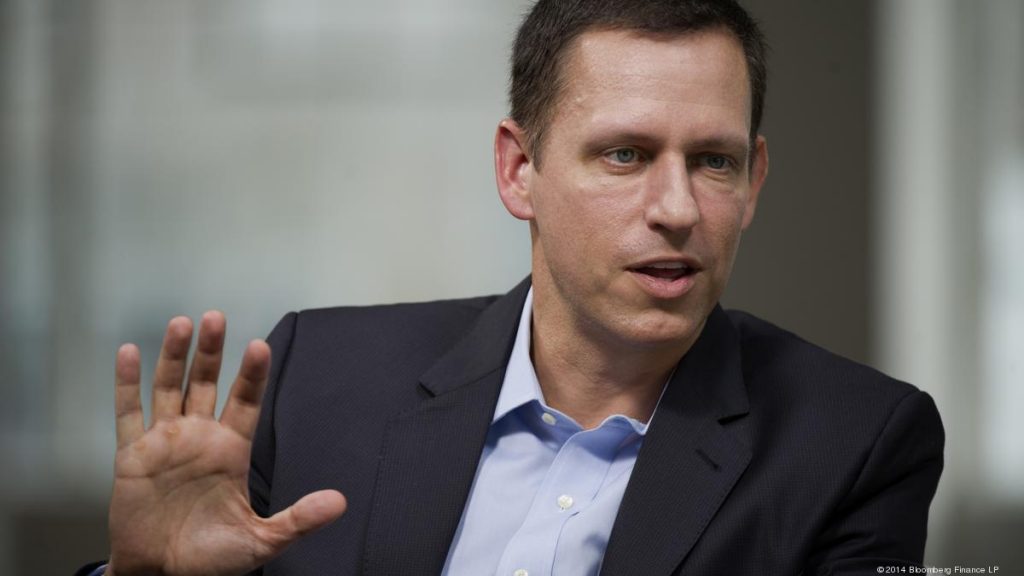
Defenders of the higher education establishment often show little understanding of the arguments critics make. As a recent example, I give you this December 22 Washington Post piece by Tufts University professor Daniel Drezner, “I’d like to take this opportunity to triple-dog-dare Peter Thiel.”
Thiel is the super-wealthy guy who has been funding sharp and ambitious young people to eschew college in favor of studying entrepreneurship and developing their business ideas with him.
He has also argued that government policy has created a higher education bubble similar to the housing bubble: Just as the government generated a housing mania that led many Americans to foolishly invest in a house in the belief that it would be a sure-win investment no matter the price, so has it generated a college mania in which most young Americans feel they must “invest” in a degree, no matter the cost, because it will give them a huge increase in lifetime earnings.
MOOCs Not a Big Factor Yet
Talk about a higher education bubble has Drezner all upset. He declaims, “I don’t care how many times you read Atlas Shrugged, the truth is that most people don’t want to be entrepreneurs – and for those people, the rewards of a college education have never been greater.”
Neither Thiel nor anyone else is suggesting that everyone should want to be an entrepreneur; he’s just offering an alternative that a few students find attractive. As for the claim that the rewards of college have never been greater, Drezner refers a very dubious Pew Research paper that has been criticized for relying on past average earnings and ignoring the present reality that a great many college graduates cannot find anything but low-skill, low-wage work. (Here is my own take on that.)
Drezner takes delight in the fact that MOOCS haven’t (yet at least) made much of a dent in traditional college enrollments, apparently believing that the success of MOOCs is somehow essential to the case we critics and bubble theorists are making. Not at all.
The core of our argument is that higher education has become, for a large percentage of students, a poor value. While costs have risen sharply, academic standards have fallen to the point where a degree doesn’t necessarily betoken any advanced learning or skill. Although MOOCs (and other innovations) will probably gain traction because of the worsening value proposition offered by most institutions, whether they do so or not doesn’t prove anything about that core argument.
War on College?
Drezner also thinks he really nails Thiel and other critics by noting that enrollments at four-year schools have hardly changed. True, but again beside the point. Great numbers of young people still demand college degrees, but not because they desire further education. It’s because, owing to rampant credential inflation, they think that no decent jobs will be available unless they have a degree.
The trouble for higher education (and society) is that spending $100,000 or more for a degree that merely allows you a chance at such jobs as retail sales person or customer service representative is unsustainable. As soon as employers generally accept a more reliable, less costly means for screening applicants than possession of a degree, demand for college will plunge.
One reason why it hasn’t done so yet is that our degree mania remains unabated, even though a few companies (among them Google) have said that they’re much more interested in other indicators of competence. Another reason is that the federal government keeps making it easier for students to pay off their loans and even having a large portion forgiven.
With a flourish, Drezner offers Thiel a bet: By 2020, will average tuition rates at a basket of colleges be lower than today? “If you don’t take the bet, that’s fine – but then just shut the hell up about a higher education bubble and admit that what you’re really advocating is a War on College.”
I wouldn’t make any bets on what happens with tuition levels, mainly because there is so much the federal government can and probably will do to keep demand high. That doesn’t mean, however, that I secretly advocate a “war on college.” What I want is for government to stop ruining college through meddling that keeps raising its cost and lowering its value.